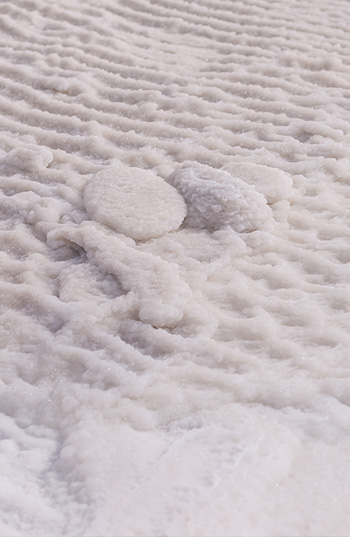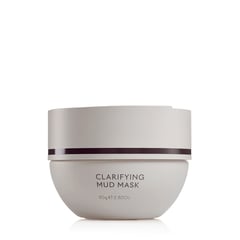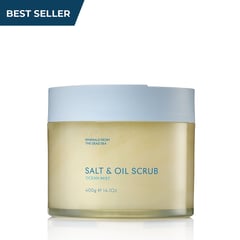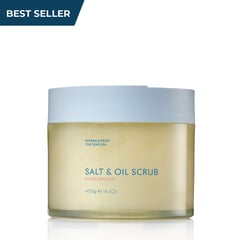
The Dead Sea, a Salt Lake bordered by Jordan to the east and Israel to the west, stands as one of the world's saltiest bodies of water. Its high salinity and unique mineral composition distinguish it from other oceans and seas, making it an exceptional subject of scientific study as well as a popular destination for therapeutic and cosmetic purposes.
At about 427 meters below sea level, the Dead Sea is Earth’s lowest elevation on land, and its waters are renowned for their high mineral content and health benefits, which far surpass those of regular oceans and lakes around the world. The unique geological setting of the Dead Sea contributes to the distinctive composition of its waters. Unlike most oceanic waters, which have a higher concentration of sodium chloride (common salt), the Dead Sea's waters contain a unique mix of minerals and salts that give it properties found nowhere else on Earth.

What Are the Major Dead Sea Minerals?
The Dead Sea's chemistry is dominated by salts and minerals that are considerably different in concentration from those in other seas or oceans. The major cations include magnesium, calcium, potassium, and sodium, while the principal anions are chloride and bromide.
Magnesium (Mg):
One of the most abundant cations in the Dead Sea, magnesium levels in this saline lake are significantly higher than in typical ocean water. It is essential for many biological processes and is known for its skin-health benefits, such as improving skin barrier function and hydrating the skin.
According to a recent publication in the International Journal of Molecular Sciences*, Magnesium is crucial for skin hydration and barrier function. It is essential for cellular processes, including DNA repair and protein synthesis, which are vital for maintaining healthy skin.
Calcium (Ca)
Present in higher concentrations than in most other bodies of water, calcium in the Dead Sea contributes to the therapeutic properties attributed to its waters, particularly in helping promote healthy bones and skin.
According to a recent publication in the International Journal of Molecular Sciences*, Calcium plays a significant role in keratinocyte differentiation and is essential for maintaining the skin barrier function.
It also influences cell adhesion and signal transduction involved in skin renewal.
Potassium (K)
Potassium levels are markedly elevated in the Dead Sea compared to other seas. This element is vital for several physiological processes, including the proper functioning of nerves and muscles.
A recent publication in the International Journal of Molecular Sciences* stated that Potassium helps to regulate the skin's moisture level and is crucial for maintaining the electrolyte balance to support proper cell function and skin hydration.
Sodium (Na)
Although present, sodium concentrations are relatively lower in the Dead Sea compared to other large bodies of saltwater, which allows for the higher concentration of other beneficial minerals.
A recent study in the International Journal of Molecular Sciences* found that sodium helps maintain hydration and ionic balance in the skin, thereby contributing to the skin's overall moisture-retention capabilities.
Why Are Trace Elements in the Dead Sea Important?
Trace elements, though present in smaller quantities, play significant roles in both environmental and biological processes. The Dead Sea presents one of the world's richest sources of trace elements in a body of water.
This complex variety of trace elements is central to the question of what Dead Sea minerals are and why they matter.
These elements vary from season to season, from location to location, and by depth of water. Researchers found anywhere from 17 to 26 Trace minerals in the waters of the Dead Sea.
Some of the trace elements found in the Dead Sea include:
-
Bromide (Br): The concentration of bromide is relatively high in the Dead Sea and is a major factor contributing to the unique density and therapeutic properties of the water.
-
Iodine (I): Found in trace amounts, iodine is important for thyroid function and has antibacterial properties.
-
Zinc (Zn): Zinc aids in wound healing and immune function and is higher in the Dead Sea than in typical seawater. According to a recent publication in the International Journal of Molecular Sciences*, Zinc is essential for wound healing, immune function, and skin development. It functions in the maintenance and repair of skin tissue, including the synthesis of collagen.
-
Strontium (Sr): Strontium levels are also noted to be higher in the Dead Sea. This element is known for its benefits to bone health.
-
Aluminum (Al), Chromium (Cr), and Vanadium (V): These metals, though typically associated with industrial processes, occur naturally and are involved in various biochemical and physiological functions.
-
Boron (B) and Lithium (Li): Known for their neurological impacts, these elements in the Dead Sea contribute to its therapeutic qualities.
-
Cadmium (Cd), Cobalt (Co), Copper (Cu), and Nickel (Ni): Essential in trace amounts for various enzymatic processes.
-
Iron (Fe) and Manganese (Mn): Crucial for their roles in oxygen transport and enzymatic reactions.
Other Minerals are also found, such as Chlorine (Cl) and Molybdenum (Mo)
How Does the Dead Sea Compare to Ocean Waters?
The Dead Sea's mineral composition is significantly different from that of the ocean.
These unique ratios are key to understanding the many benefits of Dead Sea minerals, especially for skin, muscle, and joint health.
Ocean water is primarily composed of sodium chloride, making it much different in terms of both taste and biological impact. In contrast, the Dead Sea has much higher concentrations of magnesium, potassium, and calcium salts.
For instance, the magnesium concentration in the Dead Sea can be as much as 40 times higher than in the ocean.
The Dead Sea’s high mineral content makes the water extremely buoyant. Almost everything floats in it. This same mineral richness also enhances the water’s therapeutic effects. It can help improve various skin conditions and musculoskeletal issues.
How Do Dead Sea Minerals Support Health and Beauty?
The unique mineral composition of the Dead Sea has been associated with numerous health benefits. These include improving skin ailments such as psoriasis and eczema, relieving arthritic pain, and aiding in the relaxation of muscles. The cosmetic industry utilizes these minerals in various products, promoting not only skin health but also aids in relaxation and rejuvenation.
Conclusion
The Dead Sea remains a fascinating subject for scientific research due to its anomalously high concentration of minerals and therapeutic potential. Unlike other oceanic waters, its distinctive composition provides unique biological benefits, which continue to attract interest from the medical and cosmetic industries worldwide.
As studies continue to delve deeper into the understanding of these minerals, the Dead Sea's significance in natural health and beauty products is only expected to grow, further underscoring its uniqueness among the world's bodies of water.
Frequently Asked Questions
-
Why is the Dead Sea called the “King of Minerals”?
The Dead Sea earns this title because of its unusually high concentration of diverse minerals. Unlike typical saltwater bodies, its waters contain over 20 essential minerals, many of which are found in much higher concentrations than in any ocean.
-
Can I use Dead Sea mineral products daily?
Yes, most Dead Sea mineral-based skincare products are gentle enough for daily use. However, frequency depends on your skin type and the product formulation. Always follow product instructions for best results.
-
Do Dead Sea minerals really have scientific backing?
Yes. Numerous peer-reviewed studies have documented the benefits of minerals like magnesium, calcium, and zinc for skin health, hydration, and inflammation reduction. The Dead Sea’s unique profile continues to be studied by dermatologists and researchers.
-
Are Dead Sea minerals environmentally sustainable to extract?
When sourced responsibly, Dead Sea minerals can be harvested in a way that minimizes environmental disruption. Ethical brands often ensure sustainable practices through partnerships and regulatory compliance.
-
Can Dead Sea mineral baths help with stress and sleep?
Yes. Soaking in mineral-rich Dead Sea salts may help relax muscles, soothe nerves, and support better sleep due to the calming effects of magnesium and bromide.



